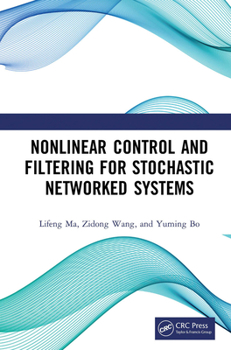Nonlinear Control and Filtering for Stochastic Networked Systems
In this book, control and filtering problems for several classes of stochastic networked systems are discussed. In each chapter, the stability, robustness, reliability, consensus performance, and/or disturbance attenuation levels are investigated within a unified theoretical framework. The aim is to derive the sufficient conditions such that the resulting systems achieve the prescribed design requirements despite all the network-induced phenomena. Further, novel notions such as randomly occurring sensor failures and consensus in probability are discussed. Finally, the theories/techniques developed are applied to emerging research areas.
Key Features
Unifies existing and emerging concepts concerning stochastic control/filtering and distributed control/filtering with an emphasis on a variety of network-induced complexities Includes concepts like randomly occurring sensor failures and consensus in probability (with respect to time-varying stochastic multi-agent systems) Exploits the recursive linear matrix inequality approach, completing the square method, Hamilton-Jacobi inequality approach, and parameter-dependent matrix inequality approach to handle the emerging mathematical/computational challenges Captures recent advances of theories, techniques, and applications of stochastic control as well as filtering from an engineering-oriented perspective Gives simulation examples in each chapter to reflect the engineering practiceFormat:Paperback
Language:English
ISBN:0367656868
ISBN13:9780367656867
Release Date:September 2020
Publisher:CRC Press
Length:226 Pages
Weight:0.76 lbs.
Dimensions:0.5" x 6.1" x 9.2"
Customer Reviews
0 rating





